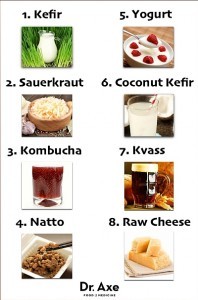Are you familiar with the term 'probiotics'? This is an interesting subject area as people are either totally in the dark on the topic or have good intentions but are misapplied.For example, with the second category of people they may believe they are addressing the bacteria of their gut by eating yogurt or taking a digestive enzyme. And while these may help with the digestive process and overall health they are not what we mean when we talk about probiotics.Probiotics include the beneficial bacteria of our gastro-intestinal (GI) tract that help us absorb and digest food. And basically this includes two main types of bacteria, lactobacillus and bifidobacterium. And besides digestion these bacteria help with our health in terms of our immunity, metabolism and body composition. These helpful bacteria are also great anti-inflammatory agents.In our GI track we have a ton of bacteria with some estimates putting the number at 10 trillion. Of this composition there are both good and bad forms of bacteria. And in a very general sense you can almost think as though there was a limit on the bacteria for our GI track. When we consume foods and have lifestyle habits that favour the bad forms of bacteria the good bacteria can get pushed out.And the opposite is also true that as we eat more foods that are probiotic enhancing and change our lifestyle for the better we can swing the balance to one where the healthy bacteria dominate. When we have more probiotics in our gut we are better able to deal with symptoms such as abdominal pain, bloating, reflux, allergies and nausea.So which foods will help the good bacteria to flourish? Think of things like yogurt (plain varieties, not the fruit on the bottom), soy, kimchi, kefir, sauerkraut, pickles, tempeh and kombucha. Some of these foods...
